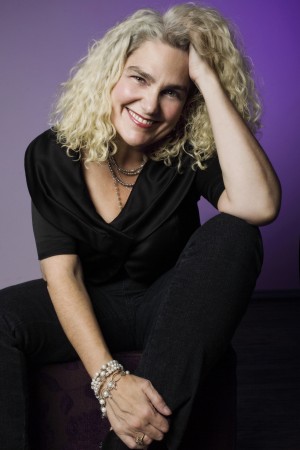The University of Guelph has received nearly $5 million from the federal government for social sciences and humanities research ranging from changing stereotypes about disabilities to climate change, digital privacy, and spousal and parental relationships.
The announcement was made Friday in Toronto by Kirsty Duncan, minister of science. The funding comes from various programs administered by the Social Sciences and Humanities Research Council (SSHRC).
In total, 21 U of G projects were supported. More than half of the University’s funding went to Carla Rice, a professor in the Department of Family Relations and Applied Nutrition, and holder of the Canada Research Chair in Care, Gender and Relationships.

Rice received a coveted $2.5-million Partnership Grant to bring together academia and community to study ways to challenge misconceptions about disability and marginalized communities. Her peer-reviewed project was ranked No. 1 among Canadian grant finalists and was one of only 17 such grants awarded nationwide.
She was also awarded an Insight Grant worth nearly $300,000 to develop policies and practices for workplace inclusion of people with episodic disabilities.
“This is fantastic news and a richly deserved honour for Professor Rice and her team,” said Malcolm Campbell, vice-president (research).
“These are highly prestigious grants awarded after a rigorous, competitive process, and Carla’s success at achieving them speaks to the quality and importance of her work, as well as her collaborative nature and ability to inspire others.”
For the past 16 years, Rice and her research team have used innovative arts and community-based research methods such as digital storytelling to address pressing issues.
“It is both humbling and tremendously motivating that such a prestigious granting body has not only awarded us this grant but even more, ranked our application first in the country,” Rice said.
With this new funding, Rice will form Bodies in Translation: Activist Art, Technology and Access to Life. Nearly two dozen community-university partners from across Canada will explore use of the arts in changing perceptions held by the public, policy-makers and health-care providers about people with mind/body differences.
The project will use her Project Re-Vision and the Re-Visioning Differences Media Arts Laboratory (REDLAB) on campus, and will build on the lab’s work with Tangled Art + Disability, Ontario’s leading disability arts organization.
The Accessibility for Ontarians with Disabilities Act is intended to make the province fully accessible by 2025, said Rice.
Legislation can promote inclusiveness but “you can’t legislate desirability, cultural recognition or welcoming-in. This is what art and cultural production can do. Without telling people what to think or feel, art can move and affect audiences to greater understanding and potentially positive social ends,” she said.
U of G will also build a SSHRC-backed partnership to make climate change mitigation efforts more efficient. Geography professor Kirby Calvert received a three-year, $200,000 Partnership Development Grant to study governance challenges, implications and conditions for community energy planning. Focusing on Ontario, Nova Scotia and British Columbia, the project will involve five universities across Canada and numerous agency partners.
U of G also received 12 Insight Grants intended to build knowledge and understanding about people, societies and the world, and seven Insight Development Grants.
“Today’s funding announcement underscores the depth and range of U of G’s social science researchers,” Campbell said.
“Their work is bringing about discovery and change that improve our understanding of complex issues and give us insights into community and individual relationships.”
Insight Grants were also awarded to:
- Jordi Diez, Department of Political Science, $117,914, judicial politics of abortion in Latin America;
- Stephen Henighan, School of Languages and Literature, $52,730, a writing project on Angola;
- Satsuki Kawano, $138,035, Department of Sociology and Anthropology, $138,035, accommodation for students with disabilities in Japanese schools;
- Stefan Linquist, Department of Philosophy, $85,279, use and abuse of functional genomics;
- Mark Lipton, School of English and Theatre Studies, $138,464, digital privacy practices and policies;
- Barbara Morrongiello, Department of Psychology, $192,036, parent safety practices;
- Kate Parizeau, Department of Geography, $268,702, reducing waste in Ontario’s food system;
- Sharada Srinivasan, Department of Sociology and Anthropology, $286,176, young people’s pathways into farming;
- Thanasis Stengos, Department of Economics and Finance, $76,875, growth convergence of country club formation;
- Yiguo Sun, Department of Economics and Finance, $96,430, quantifying economic externalities and interactions among households, firms and countries; and
- Tony Winson, Department of Sociology and Anthropology, $100,199, sustainable seafood procurement practices.
Insight Development Grants are as follows:
- Elizabeth Finnis, Department of Sociology and Anthropology, $55,612, agricultural and food sovereignty in Northern Ontario;
- Kimberly Francis, School of Fine Art and Music, $35,602, study of Marcelle de Manziarly in India;
- Louise Grogan, Department of Economics and Finance, $40,220, incarceration in Soviet labour camps;
- Edward Koning, Department of Political Science, $59,062, newcomers’ social rights;
- Thomas Mcilwraith, Department of Sociology and Anthropology, $70,015, indigenous perspectives on water and wind in natural resources management;
- Christina Smylitopoulos, School of Fine Art and Music, $64,162, a graphic satire on Thomas Tegg; and
- Tricia Van Rhijn, $53,598, Department of Family Relations and Applied Nutrition, partner relationships and post-secondary study.
